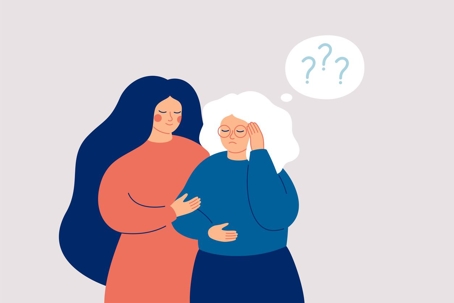Crisis Assistance Helping Out On The Streets (CAHOOTS) is a mobile crisis intervention program in the Eugene Metro Area. It uses dispatch services through the Eugene police non-emergency number. CAHOOTS is an alternative social service to traditional police that allows a person in need of medical attention or in a psychological crisis to access services and obtain treatment. Each CAHOOTS team has someone in the medical field and a crisis worker, with years of experience in mental health care, responds to these calls.
The structure and service of CAHOOTS have been in discussion recently in an effort to address police brutality against those living with mental illness. People with untreated mental illness are 16 times more likely to be killed by police than those who do not have an untreated mental illness. In Springfield, Oregon, Stacy Kenny, who was diagnosed with paranoid schizophrenia, was killed by officers in a traffic stop. In Philadelphia, Pennsylvania, Walter Wallace Jr., experiencing a psychological episode, was shot seven times and killed by responding officers. In Rochester, New York, Daniel Prude, who suffered from mental health problems, was killed by police after officers placed a hood over his head, slammed his naked body and chest to the ground, suffocating him to death. This list goes on, with more than 1,400 people being fatally shot by police since 2015.
In the case of Walter Wallace Jr., the officers were not issued tasers--only a few on their police force were--which could have saved Walter’s life. Of course, we have seen tasers themselves result in deaths that could have been prevented with a less confrontational approach. For Stacy Kennedy, officers who had situational awareness and mental health training could have prevented the escalation that ended her life. After all, the police department was put on notice of her odd behavior, as the family contacted dispatch weeks before and requested they make a note in the system that explained her mental illness and fragility. There are instances where less brutality and force would have saved those who did not live with mental illnesses, but the same is true of those who do live with mental illnesses. Those experiencing mental health crises will engage in erratic, unintentional behavior at times that cannot result in rigid, forceful responses. The incidents surrounding the killings of Walter Wallace Jr., Stacy Kennedy, and Daniel Prude are examples of had there been mental health experts who practice de-escalation techniques and understand how the human mind functions, would they be alive today, getting the help they need? Had officers called for a mental health interventionist in Springfield or had Philadelphia or Rochester implemented a CAHOOTS program that expanded into requiring them to accompany officers, perhaps these people would have continued seeing their family and loved ones.
CAHOOTS is a work in progress - it’s a start in addressing psychological crises and connecting those most vulnerable to social services and resources. Based on the CAHOOTS program in Eugene, U.S. Representative Peter DeFazio (Or.) introduced the CAHOOTS Act to Congress in August 2020, with Senator Ron Wyden (Or.) reintroducing the bill to Congress in March 2021, in an effort to address the police violence against those that are suffering from mental illness.
An important change to the program I would like to see is the expansion of the program to require law enforcement officers to request a mobile crisis interventionist when dealing with someone who is showing symptoms of mental illness or they are aware of individuals who suffer from mental illness.
About the Author
Karmen Pacheco is a JD candidate at Willamette University and will be obtaining her degree in Spring 2022. She received her undergraduate degree in Criminology and Criminal Justice at Northern Arizona University and is currently Chair of the Board for Willamette's Law Students for Sensible Drug policy and is on the board of Willamette's American Constitutional Society. She is passionate about criminal defense, criminal and social justice reform, and hopes to begin practicing in a public defense office after graduation.

